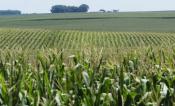
Gene manipulation using algae could grow more crops with less water
Enhanced photosynthesis holds promise of higher yields in a drought-afflicted future.
By: Fiona Harvey || The Guardian

We Can Grow 60% More Food By Hacking Photosynthesis
Hacking photosynthesis could grow up to 60% more food, on the same land we use today, according to an international team of researchers.
By: Amanda Winkler || Freethink

Johannes Kromdijk awarded SEB President’s Medal
The SEB President’s Medals are awarded annually to young scientists of outstanding merit.
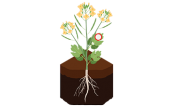
How we’ll reengineer crops for a changing climate
Genetic changes to food crops can’t solve all the problems associated with climate change, but they can help.
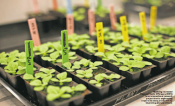
Green Genes: Agronomists are engineering DNA to save some foods from extinction
Climate change feels like an unprecedented global challenge. But the truth is, humanity has been here before — approximately 11,000 years ago. That’s when the last Ice Age ended.
By: Matt Alderton || USA Today

Coronavirus restrictions closed Canberra universities, and it's affecting industries around the world
Tory Clarke shares how COVID-19 has impacted her work on the RIPE project at The Australian National University.
By: Niki Burnside || ABC News

Inspirational women in STEM and tech: “Be True to Your Team” with Dr. Chavonda Jacobs-Young
U.S. Senior Executive scientist Dr. Chavonda Jacobs-Young explains that being true to one's team helps to build an atmosphere of trust by acting authentically and holding each other to high standards.
By: Penny Bauder || Medium
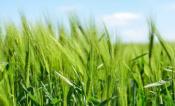
Researchers resolve two photosynthetic bottlenecks which can boost plant productivity by 27 percent
According to a new study published in Nature Plants, scientists from the University of Essex have resolved two major photosynthetic bottlenecks to boost plant productivity by 27% in real-world field conditions.
By: Atomstalk
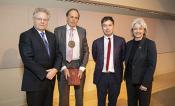
Stephen Long invested as the Stanley O. Ikenberry Chair Professor of Plant Biology and Crop Sciences
Stephen Long has been invested as the Stanley O. Ikenberry Chair Professor of Plant Biology and Crop Sciences, one of the most distinguished honors at Illinois.

Two RIPE researchers elected to AAAS Fellowship
Two RIPE researchers from the USDA-ARS and Australia’s CSIRO have been elected 2020 Fellows of the American Association for the Advancement of Science (AAAS).
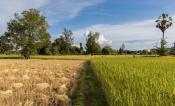
The Golden Revolution
With the famed Green Revolution running out of puff, scientists are working on a new Golden Revolution that will deliver a step-change in agricultural output.
By: Ben Long || Rural Business
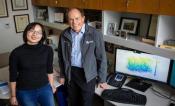
Study shines light on full potential of soybeans
Komorebi is a Japanese word that describes how light filters through leaves — creating shifting, dappled “sunflecks” that illustrate plants’ ever-changing light environment. Crops harness light energy to fix carbon dioxide into food via photosynthesis.

Scientists unlocking heat-tolerant wheat
Researchers working on molecular-level responses in crops have taken a step closer to their goal of producing heat-tolerant wheat.
By: Katy Askew || FoodNavigator
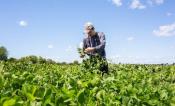
From the lab to the field, agriculture seeks to adapt to a warming world
Researchers and innovators are looking at more resilient crops and farm animals to adapt to a world with rising temperatures and at-risk food supplies.
By: Jim Robbins || YaleEnvironment360
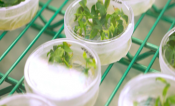
Here is ultraphotosynthesis!
It's done: by crossing plants and intervening on their genes, biochemists have managed to overcome billions of years of natural selection.
By: Pauline Fricot || Science & Vie
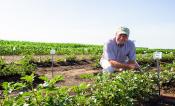
Donald Ort awarded the Charles Reid Barnes Life Membership Award by ASPB
The Charles Reid Barnes Life Membership Award from the American Society of Plant Biologists (ASPB) recognizes significant contributions to plant biology.

41st Annual Telly Awards
Earlier this year, the RIPE team and the University of Illinois’ Video Services media team partnered up to create a trailer that told the story of our project’s purpose and mission, earning us the Gold Telly Award in the General: Not-For-Profit category.

Soybeans and other crops are hurting for light, but this research fights shadows
Scientists at RIPE have developed a new mathematical computer model to understand and measure how much soybean yield is lost due to light fluctuations on cloudy versus sunny days.
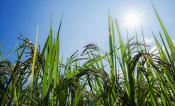
Rice genetically engineered to resist heat waves can also produce up to 20% more grain
Deputy Director Don Ort comments on a photosynthetic breakthrough in rice.
By: Erik Stokstad || Nature
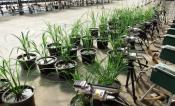
Harnessing Light Energy: Scientists look at how photosynthesis could boost yields of rice cultivars
Scientists look at how photosynthesis could boost yields of rice cultivars.
By: Seed Today
